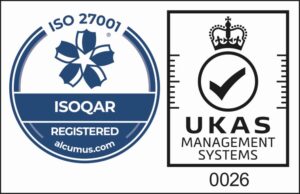The future of MSPs and IT management: predictions and trends.
The future of Managed Service Providers (MSPs) and IT management is shaped by advancements in technology, changing business needs, and evolving industry dynamics. As organizations continue to rely on technology to drive innovation and remain competitive, MSPs are positioned to play a vital role in supporting their clients’ IT operations. Let’s explore some predictions and trends that are likely to shape the future of MSPs and IT management:
Continued Growth of Cloud Services
Cloud computing has transformed the way businesses manage their IT infrastructure. In the future, MSPs are expected to offer an even wider range of cloud services, including advanced cloud migration, optimization, and management solutions. MSPs will help businesses navigate multi-cloud environments, ensuring seamless integration and efficient resource allocation.
Focus on Cybersecurity and Compliance
With the rise in cyber threats and stringent data privacy regulations, cybersecurity will remain a top priority for businesses. MSPs will invest in advanced security technologies, threat detection, and incident response capabilities to protect their clients from cyberattacks. Compliance management will also be a significant focus as businesses strive to meet regulatory requirements.
Embracing Artificial Intelligence (AI) and Automation
MSPs will increasingly adopt AI-driven tools and automation to enhance IT management efficiency. AI-powered analytics will help MSPs gain deeper insights into clients’ IT infrastructures, predict potential issues, and recommend proactive solutions. Automation will streamline routine tasks, freeing up resources for higher-value IT initiatives.
Integration of Internet of Things (IoT) Management
The proliferation of IoT devices will present new challenges in managing connected assets and data. MSPs will develop IoT management solutions to monitor and control IoT devices, analyze data from these devices, and ensure the security of IoT deployments.
Data Analytics for Predictive IT Management
Data analytics will become instrumental in predicting IT issues and improving IT management practices. MSPs will leverage big data analytics and machine learning algorithms to identify patterns, detect anomalies, and anticipate potential problems before they impact businesses.
Expansion of Managed Security Services
As cyber threats become more sophisticated, MSPs will expand their managed security services offerings. These services may include Security Operations Center (SOC) capabilities, vulnerability assessments, and managed detection and response (MDR) services.
Shift Towards Proactive and Outcome-Based Solutions
MSPs will move from reactive support to proactive management models. They will focus on delivering outcomes that align with their clients’ business objectives, offering value-driven solutions that contribute to overall business success.
Specialization in Industry-Specific IT Solutions
MSPs will increasingly specialize in providing industry-specific IT solutions. This specialization allows MSPs to understand the unique challenges and requirements of different industries and tailor their services accordingly.
Hybrid IT Management Solutions
With businesses adopting a mix of on-premises, cloud-based, and edge computing solutions, MSPs will offer hybrid IT management services to ensure seamless integration and operation of diverse environments.
Consulting and Strategic Advisory Services
MSPs will expand their offerings to include IT consulting and strategic advisory services. They will act as trusted advisors, guiding businesses in making technology decisions that align with their long-term goals and growth aspirations.
In conclusion, the future of MSPs and IT management is promising and dynamic. MSPs will continue to evolve their services to meet the changing demands of businesses in an increasingly digital world. By leveraging innovative technologies, focusing on cybersecurity and compliance, and offering specialized, outcome-driven solutions, MSPs will play a critical role in helping businesses stay agile, secure, and competitive in the years to come.













